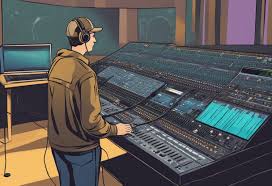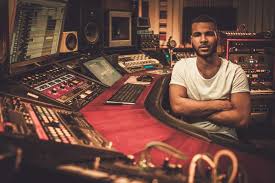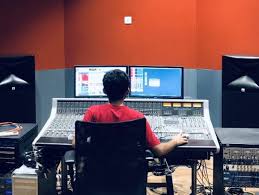![]()
If you’ve landed on this article page, you’re probably searching for a
good business idea—an idea that’s light on the pocket but heavy on
returns, promising both a fulfilling journey and potential profit.
|
How to start a lucrative career as a recording and sound
engineer
Starting your career in sound engineering involves immersing
yourself in every facet of music production, from capturing the
perfect recording to mastering the intricacies of mixing. You’ll
also need to become adept at utilizing essential equipment and
software tools.
Audio engineering is an exciting field that encompasses the
technical aspects of sound and music production. You’ll be
dealing with both analog and digital equipment, learning how to
capture, mix, and manipulate audio effectively.
While formal education can lay down the groundwork in acoustics
and electronics, nothing beats the value of practical
experience. This hands-on learning will truly set you apart as
you progress in your career.
Here’s a breakdown of the foundational knowledge you’ll need:
Acoustics: This is critical as it involves understanding how
sound travels and behaves in different environments. Your work
in audio production will be heavily influenced by this
knowledge.
Digital Audio Workstations (DAWs): These are software platforms
for recording, editing, and producing audio files. Familiarity
with DAWs is essential for audio engineering.
Microphones and Mixers: You’ll learn about various microphones
and their uses, as well as how to use mixers to manipulate sound
channels.
Signal Processing: This involves effects such as reverb, delay,
compression, and more, used to enhance the quality of the sound.
Audio Interfaces: Understanding how to convert analog sound to
digital formats, and vice versa, is a pivotal part of the job.
Sound Design: This is the creative component, enabling you to
create audio elements for various media such as video games,
film, and music.
Through audio engineering, you’ll develop a keen ear for sound
quality, learning the intricate balance between the science of
sound and the art of music production.
It’s a blend of technical skills, creativity, and critical
listening that will allow you to shape sound in extraordinary
ways.
Audio engineers play a critical role in the production of sound
across various media. Your primary tasks include capturing,
manipulating, and reproducing sound to create the desired audio
experience. Understanding your role can help steer you towards a
successful career in sound engineering.
Responsibilities:
Capturing sound: You will record audio using microphones and
other equipment, ensuring the best possible quality is obtained
from the outset.
Mixing: Balance different sound sources to achieve a harmonious
blend.
Mastering: After mixing, you’ll refine the track to ensure it
translates well across all playback systems.
Editing: From cutting to splicing, ensure smooth transitions and
flawless timing.
Manipulating sound: Using software and hardware, bend and shape
sound to fit creative visions or specific needs.
Creating sound effects: Design sounds that bring visuals to life
or serve the narrative of a project.
Throughout your career, you’ll often find yourself tweaking the
knobs and sliders on a mixing console or digital audio
workstation (DAW) to adjust levels, EQ, and effects.
Your ears are your most important asset, as they guide you in
perfecting a track’s sound.
With passion, commitment, and a constant willingness to learn,
your career in audio engineering can be both creatively
fulfilling and financially rewarding.
Many successful engineers have learned through apprenticeships
in real studios, gaining hands-on experience under the
mentorship of industry professionals. Here, what counts the most
is your practical knowledge and networking prowess.
The role of a recording engineer is by no means simple. Although
it’s typically the most seemingly understood role in audio
production, the vast array of responsibilities held by a
recording engineer as well as the often busy workflow make for a
truly involved and unique job.
With enough foresight and an expert level of understanding and
love for the craft, a recording engineer can help shape the
sound of records in a significant way. When this happens, it may
be significant enough to change a genre and the music that
follows for years to come.
Becoming a sound engineer requires a combination of education,
practical experience, and a strong passion for audio. By
understanding the role, acquiring the necessary skills, and
leveraging opportunities for learning and networking, you can
embark on a successful career in sound engineering.
Get our practical training guide on recording and sound
engineering. It’s a special invitation to Multibillion naira
Nollywood Industry. Our full mentorship guide would be provided
by our in house experts. Training can last four two to three
weeks.
|







